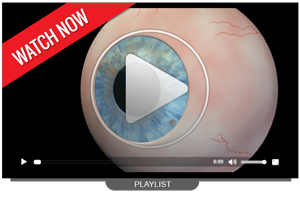Contact lenses are prescription medical devices. To make sure your eyes and vision stay healthy while wearing contact lenses, please follow these few guidelines or the instructions recommended by your doctor.
- DO always remove your contact lenses at least one hour before going to bed to allow for proper oxygen nourishment to the cornea.
- DO schedule and keep follow-up appointments with your eye doctor.
- DO wear your contact lenses on the day of your follow-up appointment unless you are experiencing discomfort.
- DO remove lenses before going swimming, using a sauna or hot tub.
- DON’T wear your lenses longer than 12 hours a day until your first follow-up visit with your doctor, unless the doctor has specifically told you otherwise.
- DON’T continue use of contact lenses if your eyes become red, irritated, painful, or if your vision gets worse while wearing lenses. Immediately take out the lenses and clean them. Let your eyes get back to normal and if the problem persists, contact our office.
- DON’T exceed the wearing times suggested, even if your lenses still feel comfortable. Studies have proven that the eye needs time to adapt to contact lenses, and your wearing schedule is based on those studies.
Warning: Ocular complications and/or long-term corneal damage are the consequences of contact lenses that are worn longer than recommended. Oftentimes, your lenses will still feel good even when you are over-wearing them.
Do not wear your lenses overnight unless they are approved for extended wear and your doctor has discussed this with you. Overnight wear increases the risk of infections, corneal ulceration and other complications.
Caring For Your Contacts
Deposits and infectious organisms such as bacteria, viruses--etc., can build up on the surface of all contact lenses. For this reason, it is very important to keep them clean and disinfected. Follow the care prescribed for your lenses:
- Cleaning removes dirt, mucous, and other debris that gets on the lenses during wear.
- Disinfecting kills bacteria (germs) on the lenses. Disinfecting is essential to prevent serious eye infections.
- Rinsing removes the other solutions from the lenses and prepares the lenses for wear.
The best way to properly care for your lenses is to develop a care routine, then stick to that routine! Remember to:
- Follow the directions outlined by your eye doctor. Oftentimes instructions are also listed on the packaging or the package insert for the contact lens solutions prescribed for you.
- Multi-purpose solutions can be used for more than one step in contact lens care. Read the label to see which functions the solutions can be used for.
- Many solutions can not be used together, and not all solutions are appropriate for all types of lenses. Only use solutions recommended by your eye doctor, and check with your eye doctor if you want to switch brands.
- When you remove your lenses, they must be cleaned, rinsed, and disinfected before they are worn again.
- Lenses that have been stored for more than 12 hours may need to be cleaned, disinfected, and rinsed again.
- Make sure solution containers are kept closed tightly, stored upright, and kept in a clean, dry, cool place when you are not using them. Keep your case clean and replace it every 2-3 months to prevent bacterial growth.
- Don’t touch container bottle tips to any surface to prevent them from becoming contaminated.
- Throw away expired solutions. (Look on the bottle for the expiration date!)
- Use new solution in your contact lenses case every day.
- Only use approved rewetting drops for lubricating or wetting your lenses. Never place the lenses in your mouth.
- Do not use tap water to rinse soft contact lenses.
- Remember contact lenses are like sponges they absorb everything from the environment and your tear film. Be careful with makeup, lotions, creams and sprays. Also, water-based makeup is less likely to damage lenses than oil-based makeup.
Here’s what you need to watch for: Redness, blurriness, light sensitivity. Remove your lenses if you are experiencing any of these 3 things. If your eyes have not returned to normal after 24 hours, please contact our office. If you have any change in vision, comfort, or irritation, immediately remove your lenses. If there is no improvement within a couple of hours, please contact our office.






